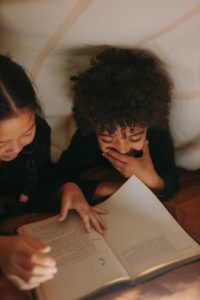Please, Tell Me a Story

Photo by Yaroslav Shuraev on pexels.com
In 2005, Jossey-Bass published a book titled Living the Questions: Essays Inspired by the Work and Life of Parker J. Palmer. Regular readers of this newsletter know I’m a fan of Parker’s work and I’ve had the opportunity to meet him personally so I’m also a fan of him as a person. This particular book is a series of stories from a wide variety of authors including university presidents, faculty members, chaplains, rabbis, poets, CEOs, school teachers, and medical doctors. In one chapter, “The Inner and Outer Life of Medicine”, two doctors, Paul Baralden, MD and David C. Leach, MD write this:
“Doctor’s lives are filled with stories… It is in the patient’s story that the doctor learns about the illness and its burden in the life of the patient. Then the doctor must create a ‘doctor’s story’. A doctor’s story is a story to attract resources and to take action. It is a story that must be faithful to the patient’s story, a story that other doctors can learn from. … The doctor’s story – along with the patient’s story – helps doctors remember and learn. Stories develop the language of the head, the hands, and the heart and their integration for doctors. Reconnecting the doctor’s story with the patient’s story – closing the communication loop – is fundamental to good patient care…
Each story is a story of sense-making for the persons involved. Getting good at stories, their formulation, their telling, and their analysis – is at the heart of good doctoring.” p.215
I’m not the first to think ‘getting good at stories’ is also at the heart of good educating.
Tell me a story. Read me a story. Once upon a time… Have you heard the one about? Let me tell you about… You won’t believe what just happened. All of these are the preludes to telling a story. We tell each other stories all the time, though that’s rarely how we think about it. Storytelling is one way we transmit knowledge. For generations before the written word, it was the only way to transmit knowledge. It’s how we keep our history alive from generation to generation. Stories are one of the most powerful tools for education because they transmit emotion as well as information.
We learn to tell stories very early, don’t we? I’ll never forget the time my youngest cousin told me a story that was important to him. He was excited and passionate about it, using his hands, his entire body, and his tone of voice to make sure we understood this was a big deal. He told us the story three or four times in exactly the same way, the same beginning, middle, and end. Of course, to this day I don’t know the details of his story since he was less than two years old and didn’t use any words that I could understand. It didn’t matter. I knew he was telling me something that was important to him and that was all that mattered. He communicated the important part to us.
Facts and figures, data matter, but we remember them better when they are told as part of a story. So what are our important stories? Let me recast the chapter quoted above. Before I start, let me be clear I consider each of us to be educators and teachers no matter our job description. Whether or not we intend it, we teach everyone we meet every day.
Educators’ lives are filled with stories. It is in the student’s story that the educator learns about the student’s experience and its place in the life of the student. Then the educator must create an educator’s story. An educator’s story is a story to attract and/or identify resources and to take, encourage, or support action. It is a story that must be faithful to the student’s story, a story that others learn from. The educator’s story – along with the student’s story – helps educators (and students) remember and learn. Stories develop the language of the head, the hands, and the heart and their integration. Reconnecting the educator’s story with the student’s story – closing the communication loop – is fundamental to good educational practice. Each story is a story of sense-making for the persons involved. Getting good at stories – their formulation, their telling and their analysis – is at the heart of good educational practice.
I wonder what would happen if, instead of merely listening patiently to someone’s complaint or concern, we instead tried to listen deeply to that person’s story? What story might we create that helps us attract resources and take action? What story of ours might be the one to create true connection and communication?
And beyond these daily interactions, what stories are we telling ourselves and each other? What lessons are we teaching with our stories – whether or not we are using words? What are we open to learning from another’s stories. What stories are so important that you’d use your words, your body, your emotion to get the point across no matter whether the person understood the details or the words? What story would like to tell me about your life, your work? I’d love to hear them.
Take care
Gage
